#Iran-backed Houthi militants in Yemen
Text

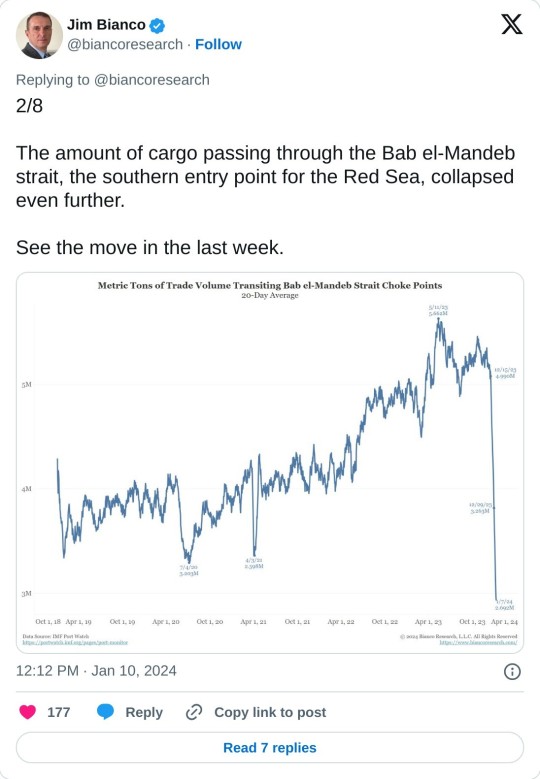
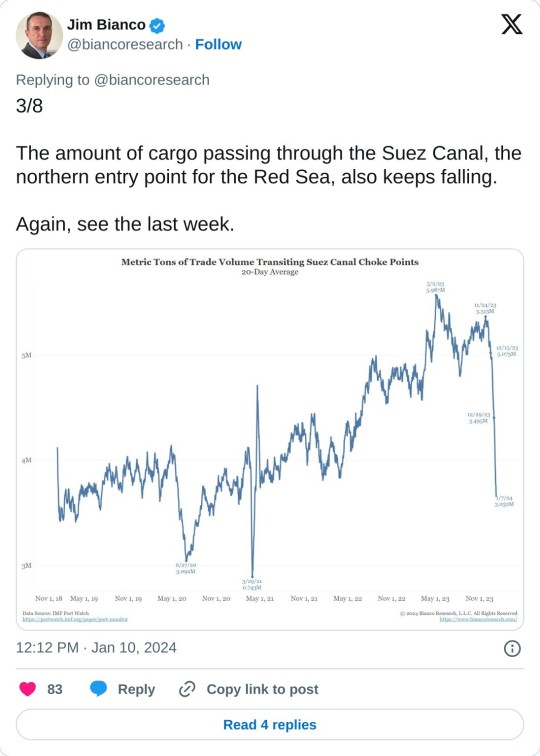
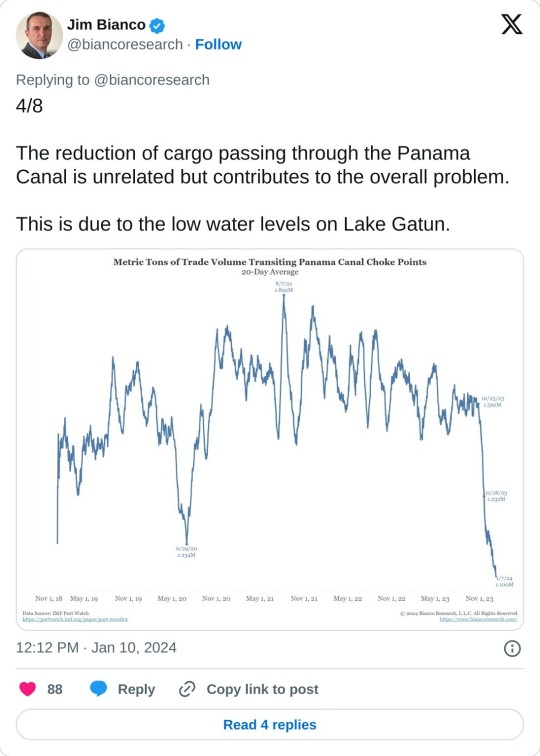
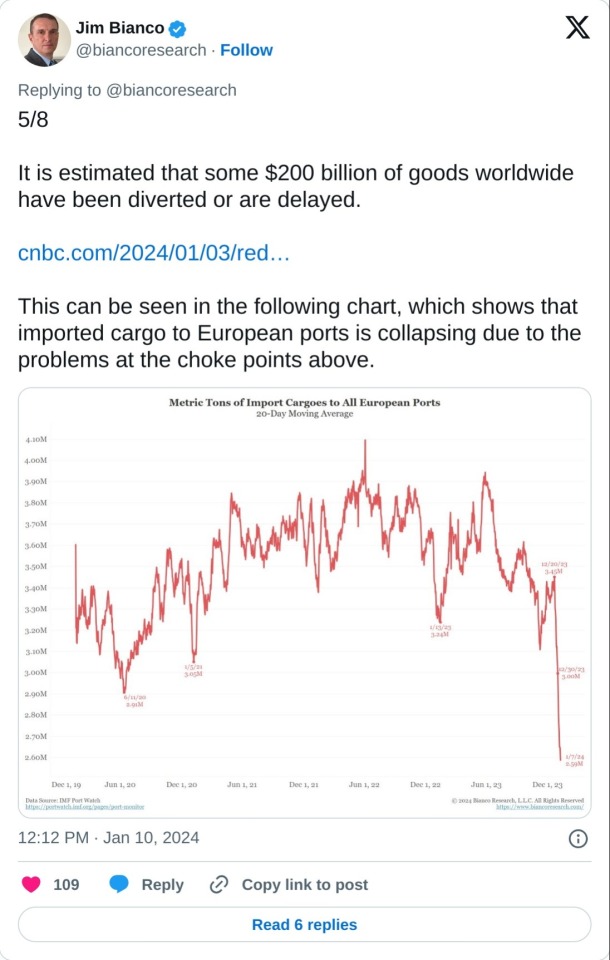


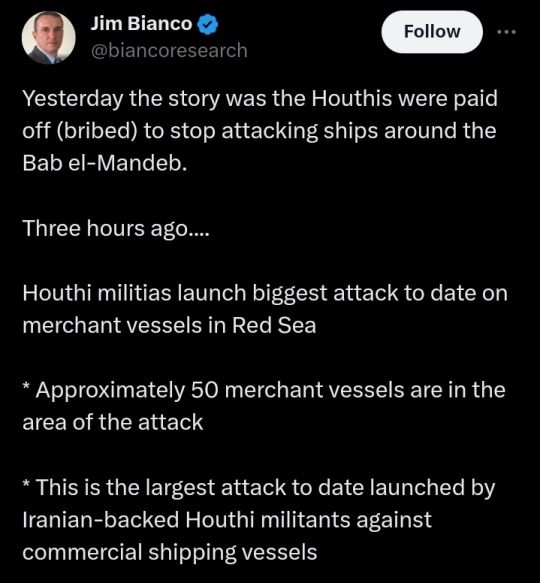
The US can always end this by making the Israelis lift the siege on Gaza
#yemen#jerusalem#tel aviv#current events#palestine#free palestine#gaza#free gaza#news on gaza#palestine news#news update#war news#war on gaza#naval blockade#joe biden
422 notes
·
View notes
Text
The U.S. and U.K. on Monday staged airstrikes against multiple targets in Yemen[...]
The White House has insisted the airstrikes have been effectives despite repeated Houthi attacks [and US President Biden's own words].
7th round of attacks from the US, 2nd joint with UK [22 Jan 24]
74 notes
·
View notes
Text
When an Iraqi militant group killed three U.S. service members at a base in Jordan over the weekend, the militants were clear about their motives: It was retaliation for American support for Israel.
“As we said before, if the U.S. keeps supporting Israel, there will [be] escalations,” a senior official from an alliance of Iraqi militia groups said in claiming responsibility for the attack. “All the U.S. interests in the region are legitimate targets, and we don’t care about U.S. threats to respond.”
The statement is not new or surprising. While the need for U.S. troops to be stationed at the Tower 22 military base — a dusty outpost on the Syria–Jordan border — has a dubious, if any, relationship to U.S. national security, the U.S. presence has been very helpful to Israel. The U.S. military in the region serves to deter Iran as well as Israel’s many other enemies.
Now, establishing deterrence against Israel’s adversaries is threatening to suck the U.S. back into a broader, open conflict in the Middle East. Take, for example, the recent U.S. attacks against the Houthis in Yemen, which began after the rebels attacked ships in the Red Sea to force an Israeli ceasefire in Gaza.
Especially at a time when the U.S. is trying to pivot away from the region, Israel increasingly looks like a liability to U.S. interests in the Middle East. American officials are forced to expend significant economic, political, and military resources to shield Israel’s government from local threats and deflect international outrage over its campaign in Gaza. Israel, it turns out, extracts a tremendous cost from the U.S. — often in treasure but, as the world saw over the weekend in Jordan, sometimes in blood — with few discernable strategic gains for the Americans.
[...]
U.S. military officials periodically criticize the impact of uncritical U.S. support for Israel on American interests in the region, where Israel remains unpopular for its policies against Palestinians. These complaints, even from U.S. military officials, have often been walked back under political pressure. Despite repeated vows by American leaders to reduce the country’s footprint in the Middle East, the U.S.’s commitment to Israel has turned into military involvement across the region. There are strikes against the Houthis in Yemen, aircraft carriers in the eastern Mediterranean to deter Hezbollah in Lebanon, and skirmishes with Iranian-backed militias in Syria and Iraq.
The costs for the U.S. from this new era of conflict are rapidly adding up. According to a recent report in Politico, an estimated $1.6 billion has already been spent on unanticipated U.S. military expenses in the region since October 7 — a price tag Pentagon officials say they cannot pay without a new budget from Congress. Global ammunition shortages are also forcing the U.S. to scramble to replenish its depleted supplies at a time when it is also struggling to contain threats in Europe and East Asia.
For Israel, however, the U.S.’s presence only fortifies its strategic initiatives. “The Israelis view the American presence in the region as very important, because it creates a backstop for them,” said Parsi. “The U.S. presence gives Israel greater maneuverability to carry out strikes in places like Syria and Lebanon, but also a sense of deterrence against those who would like to retaliate against them, since it may mean that the U.S. is dragged into the conflict as well.”
36 notes
·
View notes
Text
Russia and Iran are de facto allies. Russia buys drones from Iran which are then used to kill Ukrainian civilians. The Houthi rebels in Yemen are backed by Iran.
So it's puzzling that the Houthis attacked a Russian oil tanker. And it's the second time they've done this. Russia and the Houthis are indirect allies.
Some Russian commentators are delighted with unrest in the Middle East because it draws attention away from Russia's illegal invasion of Ukraine. But they can't be happy that the Houthis are disrupting Russia's oil trade.
My impression is that the Houthis just aren't very bright. They claim that they are attacking shipping connected to Israel, but few ships they've attacked have anything to do with Israel. This disruption of international sea lanes has already prompted a military response.
A Kremlin propagandist has boasted how Houthi attacks in the Red Sea have helped Russia by diverting Western attention away from the war in Ukraine. However, one of his country's oil tankers got caught up in hostilities when it was mistakenly fired upon, 90 nautical miles southeast of Yemen's port city of Aden, by the Yemeni militants.
[ ... ]
Hawkish Russian politician Aleksey Zhuravlyov told 60 Minutes on the Russia 1 channel how the situation in the Red Sea is "totally beneficial for us" because "everybody is forgetting about Ukraine."
"Go ahead, the West," said Zhuravlyov, chairman of the Rodina (Motherland) political party, citing Western help in Ukraine's fight in the war started by Moscow at a time of tensions in the Red Sea. "Are you ready to wage a bunch of wars?" Zhuravlyov added in a clip shared by Russia watcher Julia Davis on X, formerly Twitter.
[ ... ]
However, Zhuravlyov's comments come amid a report that Houthi militants fired a missile that landed within 1,500 feet of a vessel carrying Russian oil. It was sailing 90 nautical miles southeast of Yemen's port city of Aden, Reuters said.
Russia does have a habit of starting things without worrying much about the consequences.
The war in the Middle East that Zhuravlyov is so pleased with is into its 100th day. Russia's three-day "special operation" in Ukraine is now 690 days old.
I don't think Ukraine had anything to do with the following, however it may be war related. A 70,000 square meter warehouse for the online retailer Wildberries was destroyed by fire. The warehouse is in a suburb of St. Petersburg and it has been rumored that police had raided the building looking for migrants who could be conscripted into Putin's failing army. The migrants may have retaliated by torching the structure.
youtube
This is not exactly the first peculiar large fire in Russia since the start of Putin's invasion. Russia has a terrible fire safety record and it's probable that some firefighters are reservists who are now dodging Ukrainian fire rather than fighting fires at home.
#yemen#houthis#russian tankers#middle east#alexsey zhuravlyov#invasion of ukraine#russia's war of aggression#vladimir putin#shushary#wildberries fire#arson#karma#conscription#алексей журавлёв#средний восток#воинская повинность#война#пожар#поджог#шушары#карма#йемен#владимир путин#путин хуйло#агрессивная война россии#руки прочь от украины!#слава україні!#героям слава!
42 notes
·
View notes
Text
"The Biden administration removed the Houthis from the U.S. list of terrorist groups in 2021."
38 notes
·
View notes
Text
So currently Biden's response to the deaths of Americans in Palestine is to put sanctions, essentially just travel bans, on Israeli soldiers who kill Americans or "directly perpetrated violence, and those who have engaged in repeated acts of intimidation property destruction, leading to the forced displacement of Palestinian communities" which is all of them, everyone in the IOF is doing this as their mission but he's individualizing it to limit the very weak punishment and avoid standing against the genocide as a whole
Then yesterday, Feb 2, the U.S. struck more than 85 targets in Iraq and Syria. The reason given was that Iranian backed militant groups were allegedly responsible for the deaths of 3 Americans. And strikes against Yemen justified by 'Houthis action' continue.
The Biden administration has now targeted 5 nations in the middle east, Palestine, Yemen, Iran, Iraq, and Syria. We have directly bombed 3 of those countries and are funding bombs in a fourth one.
#palestine#yemen#syria#biden#iraq#iran#domestically the NYPD is getting more brutal against columbia protestors#and georgia has passed a bill criminalizing bail funds
19 notes
·
View notes
Text
While some military figures killed in duty are posthumously promoted in rank, Agence France Presse slapped terror commanders killed last night alongside Hamas deputy chief Salah Al-Arouri (also spelled Al-Aruri) with a demotion.
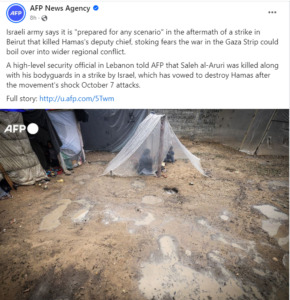
A screenshot from AFP’s Facebook page echoing the claim about Al-Arouri’s slain “bodyguards”
Thus, this morning’s article, “Israel ready ‘for any scenario’ after strike kills Hamas deputy in Lebanon,” had originally reported (6:38 AM GMT):
A high-level security official in Lebanon told AFP that Saleh al-Aruri was killed along with his bodyguards in a strike by Israel, which has vowed to destroy Hamas after the movement’s shock October 7 attacks. [Emphasis added.]
Similarly, a separate story this morning, “Hamas says Israel strike in Lebanon kills its deputy chief,” likewise cited the death of Al-Arouri’s “bodyguards”:
A high-level security official told AFP that Saleh al-Aruri was killed along with his bodyguards in the strike by Israel, which vowed to destroy Hamas after the movement’s unprecedented October 7 attacks on Israel. [Emphasis added.]

Hamas commander Samir Findi (Screenshot from Roya News)
In fact, those killed alongside Al-Aruri included two top military commanders, and were not merely “bodyguards.” As Times of Israel reported:
Hamas confirmed that seven people in total were killed in the explosion, a precision strike on a third-floor apartment said to serve as an office for the terror group. The others besides Arouri were identified as military commanders Samir Findi and Azzam Al-Aqraa, along with Hamas figures Mahmoud Shaheen, Muhammad Bashasha, Muhammad al-Rayes and Ahmed Hammoud.
According to reports, Findi oversaw Hamas military activities in Lebanon — including the firing of rockets at Israel — and was considered the terror group’s point man with the Iran-backed Houthi rebels in Yemen. Al-Aqraa reportedly orchestrated terror activities in the West Bank from overseas.
Similarly, The New York Times reported:
Ismail Haniyeh, Hamas’s top political leader, said the strike had killed Mr. al-Arouri, two Hamas military commanders and four other members. [Emphasis added.]
The Associated Press likewise reported today:
Hamas confirmed that Arouri was killed along with six other members of the group, including two military commanders. [Emphasis added.]
AFP also failed to accurately report the full “credentials” of al-Arouri himself, identifying him only as Hamas’ deputy leader. But the terror leader’s robust Curriculum Vitae also includes founding Hamas’ military wing, a fact reported elsewhere including AP, Reuters, the New York Times. The Gray Lady detailed:
Mr. al-Arouri played a key role in Hamas’s relationships with its regional allies and in increasing Hamas’s military capabilities, according to regional and Western officials. A longtime Hamas operative, he was one of the founders of the group’s armed wing and was linked to a number of attacks on Israeli civilians, including the kidnapping and killing of three teenagers in the West Bank in 2014, which he called a “heroic operation.”
AFP’s abridged resume said only: “Aruri, who lived in exile, is accused by Israel of masterminding numerous attacks.”
Following communication with CAMERA’s Israel’s office, AFP’s updated article later this morning (“Israel ready ‘for any scenario’ after strike kills Hamas deputy in Lebanon,” 11:22 am GMT), more fully described Al-Arouri as “the political number two of its enemy Hamas and one of the founders of the Islamist group’s military wing.”
In addition, the erroneous reference to slain “bodyguards” no longer appears, with the updated language more accurately stating, “Aruri and six other militants were killed in the attack.” The later version, however, still does not note the two commanders’ high-level positions.
18 notes
·
View notes
Text
DUBAI (Reuters) -Iranian leaders vowed revenge on Thursday for two explosions that killed nearly 100 people at a ceremony to commemorate top Revolutionary Guards commander Qassem Soleimani on the anniversary of his death in a U.S. drone attack.
"A very strong retaliation will be handed to them on the hands of the soldiers of Soleimani," First Vice President Mohammad Mokhber told reporters at a hospital were some of the wounded from Wednesday's blasts were receiving treatment.
Tehran has blamed the explosions on unspecified "terrorists", but no one has yet claimed responsibility for the bloodiest such attacks since the 1979 Islamic Revolution.
An unnamed source told the state news agency IRNA that the first explosion at the cemetery in the southeastern city of Kerman "was the result of a suicide bomber's action".
"The cause of the second blast was most likely the same," the source told IRNA.
State TV showed crowds gathered at dozen cities across Iran, including Soleimani's home town Kerman, chanting: "Death to Israel" and "Death to America".
Iranian authorities have called for mass protests on Friday, when the funerals of the victims' of twin blasts will be held, state media reported.
Iran's powerful Revolutionary Guards Corps described the attacks as a cowardly act "aimed at creating insecurity and seeking revenge against the nation's deep love and devotion to the Islamic Republic".
The Guards commander in Kerman denied state media reports of a shooting in Kerman on Thursday.
Iranian President Ebrahim Raisi has condemned the "heinous and inhumane crime", and Iran's top authority, Supreme Leader Ayatollah Khamenei, vowed revenge for the twin bombings, that also wounded 284 people, including women and children.
EARLIER ATTACKS
The United States on Wednesday said it was not involved in any way in the explosions and had no reason to believe Israel was.
Washington said the blasts appeared to represent "a terrorist attack" of the type carried out in the past by Islamic State militants.
Tehran often accuses its arch enemies, Israel and the United States, of backing anti-Iran militant groups that have carried out attacks against the Islamic Republic in the past. Baluchi militants and ethnic Arab separatists have also staged attacks in Iran.
In 2022, the Sunni Muslim militant group Islamic State claimed responsibility for a deadly attack on a Shi'ite shrine in Iran which killed 15 people.
Earlier attacks claimed by Islamic State include twin bombings in 2017 which targeted Iran's parliament and the tomb of the Islamic Republic's founder, Ayatollah Ruhollah Khomeini.
The U.S. assassination of Soleimani in a Jan. 3, 2020, drone attack at Baghdad airport, and Tehran's retaliation - by attacking two Iraqi military bases that house U.S. troops - brought the United States and Iran close to full-blown conflict.
As chief commander of the elite Quds force, the overseas arm of Iran's Revolutionary Guard Corps (IRGC), Soleimani ran clandestine operations abroad and was a key figure in Iran's longstanding campaign to drive U.S. forces from the Middle East.
Tensions between Iran and Israel, along with its ally the United States, have reached a new high over Israel's war on Iran-backed Hamas militants in Gaza in retaliation for their Oct. 7 rampage through southern Israel.
Yemen's Iran-backed Houthi militia have attacked ships they say have links to Israel in the entrance to the Red Sea, one of the world's busiest shipping lanes.
U.S. forces have come under attack from Iran-backed militants in Iraq and Syria over Washington's backing of Israel and have carried out their own retaliatory air strikes.
18 notes
·
View notes
Text
So risky has the Red Sea become since Houthi militants started their attacks on shipping that, since late November, over 350 container ships—plus all manner of tankers, bulk carriers, car carriers, and other merchant vessels—have diverted to other routes. That means massive logistical challenges that involve not just new charts and more fuel but getting crews and cargo to alternative staging posts. Because shipping is extraordinarily efficient, most won’t notice a thing. But if the attacks on shipping continue, we’ll start paying for the service. And we would do well to anticipate Houthi-like campaigns in other waters.
Not a day passes without more turbulence in the Red Sea. Since Christmas Eve, the inlet that links countries including Egypt and Saudi Arabia has seen multiple Houthi attacks, including against a Swiss-owned container ship and a Norwegian tanker.
Drama in the Red Sea is, of course, nothing new, going all the way back to the biblical book of Exodus. Yet today’s users of the Red Sea can’t hope for divine intervention. To be sure, the U.S. military has launched Operation Sea Guardian to protect Red Sea shipping, and since Christmas Eve the force has, among other things, shot down 12 attack drones and five missiles launched by the Yemen-based, Iran-backed Houthis. But counterfire from Western navies in response to Houthi attacks doesn’t yield the sort of chartable sailing environment shipping lines need. It may help solve the problem in the long-term, but it does little right now.
What’s more, it’s unclear which ships can expect escort. The French Navy seems to prioritize French-flagged vessels, but—as I have often discussed in Foreign Policy’s pages—most vessels sail under a flag of convenience, are owned in one country and managed in another, have foreign crew members, and carry cargo between altogether other places.
What qualifies as a U.S., or French, or Norwegian vessel in the Red Sea can be deeply uncertain. And shipping—and most importantly, the insurers—is all about reducing risk. That means the largest shipping lines have instead begun diverting their ships to other routes. By Dec. 24, some 280 box ships had already been rerouted, as had lots of tankers, bulk carriers, car carriers, and other merchant vessels. (By Dec. 27, Maersk and CMA CGM had announced they would gradually returning to the Red Sea—but if the situation continues to deteriorate they can divert again.)
That means a sudden procession of ships taking the much longer route via the Cape of Good Hope on South Africa’s southwestern coast. “Shipping companies are extremely busy right now,” Cormac McGarry, a maritime analyst at consultancy Control Risks, told Foreign Policy. “They’ve been working over Christmas, changing routes. The first thing that happens when you divert is the legal aspect—a clause in shipping contracts allows shipping lines to divert if there’s a war risk. And then you have to decide where to divert your ships to.” The Cape of Good Hope route, which the Suez Canal’s construction once made redundant for long-distance cargo, is suddenly en vogue again.
As large parts of the global public now know, traveling via the Cape of Good Hope rather than the Suez Canal adds an additional 10 to 12 days of sailing—and a completely different route for captains and their top lieutenants to chart. But that’s perhaps the easiest part. “Planning a new route doesn’t take much time when working with electronic charts, but rounding the Cape does bring new considerations,” a senior officer who works on the largest types of container ships told Foreign Policy.
Those new, and thorny, considerations include getting crews and cargo to where they need to be—because, in many cases, ships’ current crews are scheduled to finish their rotations and other seafarers are waiting to take over. “If you’re going around South Africa, you may need to stop somewhere during the journey for bunkering and change of crews,” McGarry pointed out. “And if you’re changing a crew out of somewhere in southern Africa rather [than] somewhere around Suez, you need to change where they fly to and from.”
McGarry said ordinarily ships might change crews and cargo near the canal; now, the changes will need to occur in places such as Mombasa, Kenya; Durban, South Africa; Dar es Salaam, Tanzania; or Gran Canaria, one of Spain’s Canary Islands. Just before Christmas, Mombasa and Dar es Salaam were reporting a massive spike in ship arrivals; in the case of Dar es Salaam, the sudden rush had resulted in a 16-day wait to refuel. “ [Diversion] can be done, and the shipping lines are doing,” McGarry said. “But it brings additional costs.”
Those costs are there whatever route the ships take: Journeys through the Red Sea bring hefty war risk premiums, and the Cape of Good Hope route brings additional fuel costs, not to mention the costs of rerouting crews and cargo. Several shipping lines have already imposed surcharges for their services. The delays and extra costs may, in fact, merely be the first chapter in the geopolitically connected turbulence facing global shipping and, as a result, the globalized economy.
The Red Sea turbulence is also bringing trouble to nearby countries. With ships spending as little time as possible in the Red Sea, countries such as Sudan and Eritrea—whose only ports are located on the Red Sea—will struggle to get ships to call at their ports. Egypt, the custodian of the Suez Canal, is already suffering. And with less traffic through the canal, shipping to Mediterranean countries such as Greece, Italy, and Turkey will become especially cumbersome.
Iran, in fact, seems to have concluded that the Houthis’ experiment in the Red Sea has been so successful that it bears repeating in the Mediterranean. “They shall soon await the closure of the Mediterranean Sea, [the Strait of] Gibraltar and other waterways,” Brig. Gen. Mohammad Reza Naqdi, the coordinating commander of Iran’s Islamic Revolutionary Guard Corps, told Iranian media on Dec. 23, apparently referring to the international community.
Spare a thought for the world’s seafarers and shipping logisticians—there’s no holiday break for 2024’s troubled waters.
7 notes
·
View notes
Text
As he orders airstrikes [on Yemen]q in a growing Middle East conflict, President Joe Biden faces fresh demands that he ask Congress to vote on a new authorization for military action before he proceeds further.
Those calls, however, are falling on deaf ears, with the White House insisting that the commander in chief already has approval to carry out the strikes from two authorizations for use of military force, or AUMF, votes more than 20 years ago, in the wake of the terrorist attacks of Sept. 11, 2001.[...]
And after a drone attack in Jordan killed three U.S. service members and injured more than 30 others over the weekend, Biden vowed retaliation against Iran-backed militants who he said carried out the brazen assault.
“We shall respond,” he said.
House and Senate lawmakers will receive a number of classified briefings about the deadly attack this week. Biden's vow comes just days after a bipartisan group of senators sent a letter urging him to come to Congress before he undertakes any further military action.[...]
Across the Capitol, a group of nearly 30 House members — including some of the most liberal and most conservative members — sent a separate letter to Biden questioning the constitutionality of the airstrikes on the Houthis and demanding that he come to Congress before he launches additional strikes.[...]
Biden said in a recent letter to congressional leaders that last Tuesday he ordered strikes in Iraq and Syria against Iran’s Islamic Revolutionary Guard Corps, a militia group he says is responsible for attacking U.S. personnel and facilities. He said he did so “in accordance” with the 2001 and 2002 AUMFs and “to protect United States citizens both at home and abroad.”[...]
While he faces criticism from war-weary liberals and conservatives, some also blamed Biden for not being tough enough with Iran. Senate Minority Leader Mitch McConnell, R-Ky., Biden’s former colleague in the upper chamber, argued in a floor speech last week that while Congress “must keep a firm grip on the power of the purse ... this is no time for 535 commanders in chief dictating battlefield tactics from halfway around the world.”[...]
“The entire world now watches for signs that the President is finally prepared to exercise American strength to compel Iran to change its behavior,” he continued.
29 Jan 24
67 notes
·
View notes
Text
Will America Invade Iran???
-By Shoaib Maldar
The Islamic Republic of Iran has taken full control of the persian gulf.About 30% of oil passes through that narrow strait.The Iranians are seizing oil tankers in retaliation of American seizure of Iranian oil.To pressurize iran the biden administration has deployed 3000 marines in the persian gulf.
But can america risk yet another war in Iran???
First of all iran is not iraq.The Iranians at this point are 100 times powerful than iraq.
The Iranians have shia muslim militants spread all across sunni muslim dominated middle east.More than 1 lakh militants are present in yemen,Iraq,syria and most importantly lebanon.
The Iranian proxy hezbollah is the worlds heavily armed militia group with around 150000 crude missiles (acc to israeli intelligence) dispersed throughout lebanon and all pointed at israel.
Though the missiles are old soviet styled katysha rockets but when they are fired in large numbers they can cause considerable damage.No air defense in this world has 100% precision.
Coming back to the point if america dares to attack Iran the Iranians can simply target all american bases present in middle east.
The majority sunni muslim countries of middle east are all American allies and are dependent on USA for defense.The shia Iranians can simply target the oil refineries in middle east and send whole world in economic recession.
The Saudis use American defense systems to protect their oil refineries but few years back the Iranian backed houthis from yemen were able to bomb the refineries using Iranian drones.
Iran is a huge country with huge mountain ranges.The guerilla warfare will destroy the American military.
Iran has already enriched uranium upto 84% and to make nukes you need 90%.According to IAEA Iran currently has enough uranium to make 5 nuclear bombs.
The Iranians have placed the nuclear centrifuges deep inside mountains about 100 feets under.The american and Israeli airforce uses bunker buster bombs but they can reach max 60 feets.
The Iranians have one of the biggest ballistic missile program in middle east with range reaching Europe.
The Iranians have also developed thousands of drones and other advanced weaponary that is giving nightmares to ukraine.The Ukrainians are using american and western defense systems but they are still unable to stop iranian drones used by russians.
The final trump card the Iranians have is the newly developed hypersonic missile which has a speed of Mach 15.This hypersonic highly maneuverable missiles are impossible to detect and can sink the American navy in the strait of hormuz.
Taking all the economic and military parameters into consideration I conclude that the Americans are not at all prepared for a full blown invasion of iran.
What did america gain from Iraq war???
Iran backed shia political parties are running government in Iraq.Iraq at this moment is under Iranian influence.
What did america gain from Afghanistan war??
Taliban is ruling Afghanistan even after 20 years of American military intervention and more than trillion dollars spent.
Uncle Sam aapke din bhar chuke hai......
#geopolitics with shoaib#desiblr#indian#iran#imperialism#president of the united states of america#ameri azazel#israel#muslim#shia muslims#islam#shia#sunni#prophet#desi tumblr#desi aesthetic#urdu lines#desi academia#urdu aesthetic
9 notes
·
View notes
Text

Dave Whamond :: @DaveWhamond
* * * *
LETTERS FROM AN AMERICAN
January 28, 2024
HEATHER COX RICHARDSON
JAN 29, 2024
Today—last night U.S. time—three military personnel were killed and 34 more wounded in a drone attack on the living quarters at a U.S. base in Jordan, near the Iraq-Syria border. U.S. troops are stationed there to enable them to cross into Syria to help fight the Islamic State. There have been almost-daily drone and missile strikes on U.S. forces in Iraq and Syria since the October 7 attack on Israel by Iran-backed Hamas. The U.S. has blamed Iran-backed militant groups for the attack, and while no one has officially claimed responsibility yet, three officials from such groups have said an Iran-backed militia in Iraq is responsible.
President Joe Biden today called the act “despicable and wholly unjust,” and he praised the servicemembers, who he said “embodied the very best of our nation: Unwavering in their bravery. Unflinching in their duty. Unbending in their commitment to our country—risking their own safety for the safety of their fellow Americans, and our allies and partners with whom we stand in the fight against terrorism.”
“And have no doubt,” he said, “we will hold all those responsible to account at a time and in a manner [of] our choosing.”
Republican war hawks have called for retaliation that includes “striking directly against Iranian targets and its leadership,” as Senator Roger Wicker (R-MS) said, or by “Target[ing] Tehran,” as Senator John Cornyn (R-TX) said. Republicans are blaming Biden for failing to “isolate the regime in [Iran], defeat Hamas, & support our strategic partners,” as Representative Carlos Gimenez (R-FL) wrote on X, formerly Twitter, today.
But there is, of course, a larger story here. The Biden administration has been very clear both about the right of nations to retaliate for attacks and about its determination to stop the war between Hamas and Israel from spreading.
Iran would like that war to spread. It is eager to stop the normalization of relations between Arab states and Israel, and is backing Hamas in Gaza, the Houthis in Yemen, and Hezbollah in Lebanon—all nonstate militias—to try to stop that normalization.
They are trying to stop what Patrick Kingsley and Edward Wong outlined in the New York Times yesterday: a new deal in the Middle East that would end the war between Hamas and Israel and establish a Palestinian state. The constant round of phone calls and visits of Biden and Secretary of State Antony Blinken with at least ten different countries is designed to hammer out deals on a number of fronts.
The first is for a cease-fire between Hamas and Israel, which would require the exchange of more than 100 Israeli hostages taken on October 7 for thousands of Palestinians held by the Israelis. The second is for a new, nonpartisan Palestinian Authority to take control of Gaza and the West Bank. The third is for international recognition of a Palestinian state, which would be eased by Saudi Arabia’s recognition of Israel. If that recognition occurs, Arab states have pledged significant funds to rebuild Gaza.
Israel’s prime minister, Benjamin Netanyahu, has rejected this proposal, but his popularity is so low people are talking openly about who can replace him. Hamas and Iran also reject this proposal, which promises to isolate Iran and the militias from stable states in the Middle East.
Behind this story is an even larger geopolitical story involving Iran’s ally Russia. As Democratic strategist Simon Rosenberg retorted when Senator Wicker called on Biden to respond to the attack that killed three Americans “swiftly and decisively for the whole world to see”: “Wasn’t funding Ukraine and Israel the first, critical step in deterring Iran? We are in this place now due to the Russian fifth columnists in the Republican Party including Trump who slavishly do Putin’s bidding.”
Rosenberg was referring to the fact that Iran is allied with Russia, and Russia is desperate to stop the United States from supporting Ukraine. Russia’s president, Vladimir Putin, apparently thought his February 2022 invasion of Ukraine would establish control of the eastern parts of that country in a matter of days. Instead, the invasion has turned into an expensive and destabilizing two-year war that has badly weakened Russia and that threatens to stretch on.
In the United States, today marks the 100th day that extremist Republicans have refused to provide supplemental funding for Ukraine or Israel arguing that funding to protect the U.S. border must be addressed first. On October 20, 2023, as David Frum pointed out today, Biden asked Congress for “$106 billion to aid Ukraine and Israel against attack by Russia, Iran, and their proxies.” That funding has bipartisan support, but “[f]or 100 days, House Republicans have said NO,” Frum said. “Today, Iranian proxies have killed Americans.”
Republicans’ insistence that they want border funding has proved to be a lie, as Democratic and Republican senators have hammered out a strong agreement that extremist Republicans now reject. Former president Trump has made it clear he wants to run on the idea that the border is overwhelmed, so has demanded his supporters prevent any solution. Today, on the Fox News Channel, when asked why Republicans should let Biden “take a victory lap” with a border deal, Senator James Lankford (R-OK), who has been part of the border deal negotiation team, responded with some heat:
“Republicans four months ago would not give funding for Ukraine, for Israel, and for our southern border because we demanded changes in policy. So we actually locked arms together and said we’re not going to give you money for this, we want a change in law. And now it’s interesting, a few months later, when we’re finally getting to the end they’re like, ‘Oh, just kidding, I actually don’t want a change in law because [it’s] a presidential election year.’ We all have an oath to the Constitution, and we have a commitment to say we’re going to do whatever we can to be able to secure the border."
MAGA Republicans in charge of the Oklahoma Republican Party showed where Trump Republicans stand when they voted on Saturday to “strongly condemn” Lankford for “playing fast and loose with Democrats on our border policy.” They said “that until Senator Lankford ceases from these actions the Oklahoma Republican Party will cease all support for him.”
In The Atlantic, Frum noted that “vital aid to Israel and Ukraine must be delayed and put in further doubt because of a rejected president’s spite and his party’s calculation of electoral advantage. The true outcome of the fiasco in Congress will be the collapse of U.S. credibility all over the world. American allies will seek protection from more trustworthy partners, and America itself will be isolated and weakened.”
Rosenberg wrote: “If you are unhappy with Iran today, first thing you should do is come out for funding Ukraine fully. Nothing will embolden Iran more than a Russian victory in Europe.”
LETTERS FROM AN AMERICAN
HEATHER COX RICHARDSON
#Dave Whamond#Letters From An American#Heather Cox Richardson#The Atlantic#Immigration Reform#Election 2024#US Foreign policy#war in Ukraine#war in Israel#Iran#radical republicans#MAGA#Putin Republicans
4 notes
·
View notes
Text
“Kremlin propagandist Vladimir Solovyov warned of an incoming new world war that, in his claims, would see the West pitted against Muslims all over the world, whom Russia would back with the supply of weapons.
(…)
"They delivered ATACMS. We should deliver everything America's enemies need," Solovyov can be heard saying in an excerpt shared (and translated) on YouTube by the Russian Media Monitor, an independent project monitoring Russian news media and Kremlin propaganda.
(…)
He added: "You want to kill Russian people? you are delivering weapons—you are hoping to get away with this? Supply any weapons—North Korea, Syria, or anyone else needs, anyone who is our ally or a situational ally in this war—give them everything so that not one American soldier on foreign territory as an occupant...they should not feel safe!
Solovyov then said that a new world war is coming. "Do you even understand what will happen if a global jihad will start?" he said, adding that nobody can really grasp what would be the impact of a religious war, though he said that "NATO critters and its allies" would be to blame.”
“One of the officials said the missiles were fired by Iranian-backed Houthi militants, who are engaged in an ongoing conflict in Yemen. Approximately 2-3 missiles were intercepted, according to the second official.
Later Thursday Pentagon press secretary Brig. Gen. Pat Ryder confirmed that the USS Carney shot down three land attack missiles as well as several drones that were launched by Iran-backed Houthi forces in Yemen.
(…)
The incident was one of a series in recent days with US bases being targeted by drones in Syria and Iraq amid increasing tensions in the region as the war between Israel and Hamas continues.
(…)
On Wednesday, two drones targeted the al-Tanf garrison in Syria, where US and anti-ISIS coalition forces are based, Ryder said. One drone was engaged and destroyed, and another drone impacted the base resulting in minor injuries to coalition forces, Ryder said.
(…)
On Tuesday, US forces defended against three drones near US and coalition forces in Iraq, Ryder said. Two of the drones targeted the al-Asad airbase, which resulted in minor injuries to coalition forces. And in northern Iraq near Bashur airbase, US forces engaged and destroyed a drone, resulting in no injuries or damage, Ryder said.
(…)
Asked whether all of these attacks are tied to the ongoing war between Israel and Hamas, and anger in the region over the US’ support for Israel, Ryder said the US is still assessing the attacks.
“Our focus is going to be continuing to ensure we are deterring a potential broader regional conflict,” he said.”
#russia#ukraine#israel#gaza#hamas#palestine#iran#solovyov#vladimir solovyov#uss carney#houthi#houthis#yemen#war#wwiii#world war 3#jihad
6 notes
·
View notes
Text
U.S. and British forces attacked at least 30 Houthi targets in Yemen on Saturday, U.S. officials told The Associated Press.
This was the second wave of attacks meant to weaken even more Iran-backed groups that have been attacking American and international interests since the end of the war between Israel and Hamas.
2 notes
·
View notes
Text
US Military Says Five Houthi Drones Destroyed Posed Imminent Threat
The U.S. and its Red Sea allies took down five Houthi drones that posed an “imminent threat” over the weekend, according to statements released by U.S. Central Command.
On Sunday, a U.S. coalition warplane destroyed one uncrewed aerial system (UAS) launched by the Iranian-backed Houthi movement over the Gulf of Aden from Houthi controlled areas in Yemen.
U.S. Central Command said the coalition destroyed three drones over the Red Sea on Saturday. A Houthi drone —released from Yemen over the Gulf of Aden — was also taken down on Friday by a coalition aircraft.
“It was determined that these UAS presented an imminent threat to both coalition forces and merchant vessels in the region,” the Central Command statement read. “These actions are taken to protect freedom of navigation and make international waters safer and more secure for U.S., coalition, and merchant vessels.”
U.S. Central Command said there were no injuries or damages reported by U.S., coalition or merchant vessels amid the weekend drone attacks.
Newsweek reached out to U.S. Central Command via email Sunday night for additional comments.
A Yemeni man walks under mock drones and missiles displayed at a square on April 25, 2024, in Sana’a, Yemen.
A Yemeni man walks under mock drones and missiles displayed at a square on April 25, 2024, in Sana’a, Yemen.
AFP/Getty Images
Last month, a senior official of the powerful Yemeni movement, also known as Ansar Allah, revealed to Newsweek that the group is committed to coming to the aid of its Iran-aligned alliance in the event that the ongoing conflicts surrounding Israel’s war in Gaza spiral into a major regional war.
“As for our defense of ourselves, our region, and those with whom we have alliances, such as the Axis of Resistance,” Nasreddin Amer, deputy information secretary for Ansar Allah, also known as the Houthis, told Newsweek, “we will certainly never stand idly by in the face of any foreign, Western aggression against any country in our Islamic world.”
The comments come as Ansar Allah presses on with its campaign of maritime attacks against mostly commercial ships in the Red Sea and Gulf of Aden, as well as long-range missile and drone strikes against Israel itself.
On Thursday, Ansar Allah claimed to have targeted two “Israeli” ships, the MSC Diego and MSC Gina, in the Gulf of Aden as well as well two more attacks against the MSC Vittoria in the Indian Ocean and the Arabian Sea.
Already facing repeated rounds of airstrikes by the United States and the United Kingdom, the Houthi group has asserted that its campaign would not end until Israel ceased its offensive against Gaza, where war has raged since the Palestinian militant group Hamas launched an attack against Israel on October 7, 2023.
Uncommon Knowledge
Newsweek is committed to challenging conventional wisdom and finding connections in the search for common ground.
Newsweek is committed to challenging conventional wisdom and finding connections in the search for common ground.
Source link
via
The Novum Times
0 notes
Text
Iran has admitted carrying out a missile and drone attack on western Pakistan on Tuesday.
Officials in Islamabad said two children were killed and three others injured in the attack in Balochistan.
Iran's foreign minister said the operation targeted the militant group Jaish al-Adli, which he described as an "Iranian terrorist group" in Pakistan.
As a result the Pakistan's government recalled its ambassador to Iran and has blocked Tehran's envoy from returning.
The Balochistan attack comes after Iran attacked targets in Iraq and Syria earlier this week.
Islamabad said the attack was "illegal" and warned of "serious consequences".
However Iran's Foreign Minister Hossein Amir-Abdollahian, speaking in Davos, insisted that no Pakistani citizens had been targeted, only members of Jaish al-Adl.
"We only targeted Iranian terrorists on the soil of Pakistan," Mr Amir-Abdollahian said.
He added he had spoken to his Pakistani counterpart and "assured him that we do respect sovereignty and territorial integrity of Pakistan and Iraq".
The latest air strike comes at a time of growing tension across the Middle East, with war raging between Israel and the Palestinian group Hamas in Gaza.
Tehran says it does not want to get involved in a wider conflict. But groups in its so-called "Axis of Resistance", which include the Houthi militants in Yemen, Hezbollah in Lebanon and various groups in Syria and Iraq, have been carrying out attacks on Israel and its allies to show solidarity with the Palestinians. The US and UK have launched air strikes on the Houthis after they attacked commercial shipping.
China on Wednesday urged Pakistan and Iran to show "restraint" and "avoid actions that would lead to an escalation of tension". Foreign ministry spokesperson Mao Ning added that Beijing saw the countries as "close neighbours".
Perhaps stung by recent deadly attacks on home soil, Iran seems intent on exacting revenge on those it sees as responsible.
At a time of heightened regional tensions, Iran is keen to portray strength and demonstrate to its own population that acts of violence will not go unpunished.
Iran shows missile capabilities with regional strikes
Tuesday's strike in Pakistan hit a village in the vast south-western border province of Balochistan. Tehran said it was targeting Jaish al-Adl, or "army of justice", an ethnic Baloch Sunni Muslim group that has carried out attacks inside Iran as well as on Pakistani government forces.
Last December Jaish al-Adl attacked a police station in Rask, a town close to the border with Pakistan.
Two weeks ago Iran suffered its worst domestic attack since the Islamic Revolution, when two bombs killed 84 people at a ceremony in Kerman to commemorate the US assassination of Iran's notorious Revolutionary Guard general, Qasem Soleimani.
On Monday, Iran fired ballistic missiles at Syria and Kurdish-controlled northern Iraq. Iran said it was targeting Islamic State and Israel's Mossad spy agency, both of whom it said had been involved in the Kerman bombings.
The strike on Iraq hit a building in the northern city of Irbil. Four civilians were killed and six hurt in the attack, local authorities said. The US condemned the attack.
Iran then struck Syria's north-western Idlib province, which is the last remaining opposition stronghold in the country and home to 2.9 million displaced people.
But hitting its nuclear-armed eastern neighbour Pakistan is a dramatic escalation. Pakistan expressed outrage, saying the attack took place "despite the existence of several channels of communication" between the countries.
On Wednesday Islamabad said it had recalled its ambassador to Iran and the Iranian ambassador would not be allowed back into the country for the time being.
Pakistan and Iran have a delicate but cordial relationship. This attack took place on the same day as Pakistan's prime minister and Iran's foreign minister met in Davos and while the Iranian and Pakistan navies held military drills together in the Gulf.
Yet both have accused one another of harbouring militant groups that carry out attacks on the other in their border areas for years.
Security on either side of their shared border, which runs for about 900km (559 miles), has been a long-running concern for both governments.
The Iranian strike is believed to have hit Sabz Koh village about 45km from the Iranian border and 90km from the nearest town Panjgur. Local officials described it as a sparsely populated area home to livestock-owning Baloch tribes where smuggling of goods, drugs and weapons is rife.
"People on both sides of the border consider themselves to be deprived of basic necessities, face discrimination and demand a larger share from their own resources," security commentator Zaigham Khan told the BBC.
In Iran, the Sunni Muslim Baloch minority complains of discrimination in the Shia Muslim-majority state, while Baloch separatist groups are continuing an insurgent movement against the Pakistani government.
Jaish al-Adl is the "most active and influential" Sunni militant group operating in Sistan-Baluchestan, according to the office of the US Director of National Intelligence. It is designated as a terrorist group by Washington and Tehran.
Another security commentator in Pakistan, Aamir Rana, told the BBC he thought the diplomatic crisis "would take a while to calm down but this is also something that Pakistan would not like to escalate".
He said in the past Pakistan had not reacted to Iran's actions along the border - "but now the ball is in Iran's court, whether it wants to get its act right".
7 notes
·
View notes